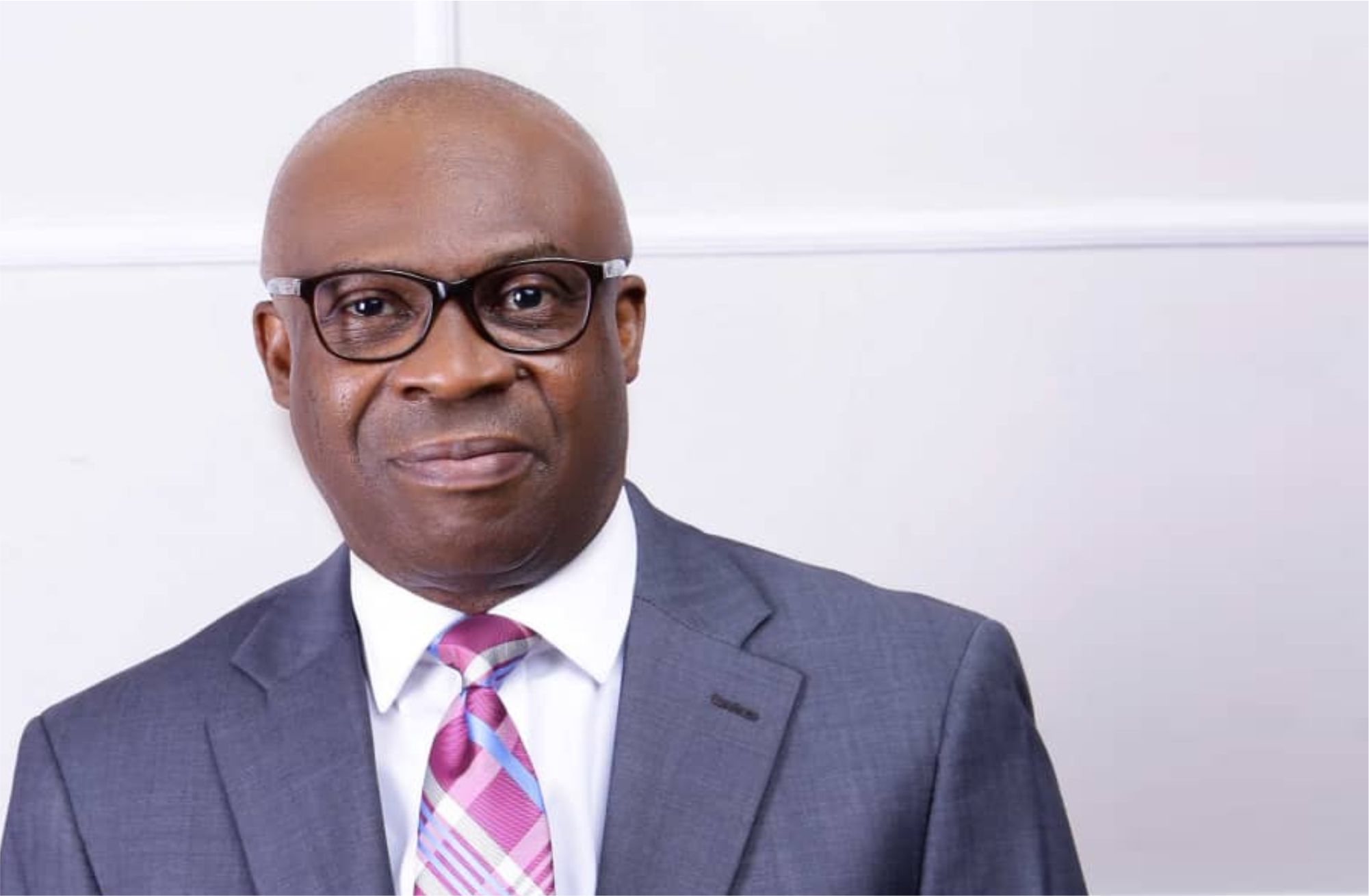
When was the Fintech Association of Nigeria established?
The association was established in June 2017, with Dr Segun Aina serving as its first president. The initial members were five and today we have 415 members cutting across 22 sectors of the economy. We are an inclusive association and membership is open to organizations and individuals involved in a digital transformation journey.
What are the core objectives and functions of the association? What are the benefits that your members enjoy?
The Mantra of the Association is to “Dive Digital Inclusion” in Nigeria. This is further supported by three core objectives:
Connect – to bring together all stakeholders in the digital space to interact, network, share ideas, develop solutions, etc. This objective is supported with various activities including the Nigeria Fintech Week which holds from October 24 to 26, 2023 at the Landmark Centre.
Accelerate – This objective addresses thought leadership interventions, capacity building initiatives and research. We currently have a training package called the DigiQuip series, under which we have the DigiStuds training where we have trained over 400 students in public universities on python language, data analytics, graphics design, web design, UX/CX.
Advocate – Involves liaising and collaborating with Regulators, National Assembly, and other government agencies to ensure policies, regulations and frameworks support the innovation and creativity to grow the Fintech ecosystem. Knowing that Technology is always ahead of regulation, we created a Reguvator forum (regulators and innovators), which meets quarterly to discuss issues affecting the ecosystem. Engagement of Regulators and Innovators is good for the ecosystem, and we hope to see this forum becoming a platform where innovation, policies and frameworks originate from. The forum currently has the following regulators as members: Central Bank of Nigeria (CBN), Security Exchange Commission (SEC), National Insurance Commission (NAICOM), Nigeria Communication Commission (NCC), Nigeria Financial Intelligence Unit (NFIU), Nigeria Information Technology Development Authority (NITDA), Nigeria Deposit Insurance Corporation (NDIC), Federal Competition and Consumer Protection Commission (FCCPC), Nigeria Data & Privacy Commission (NDPC), Nigeria Investment Promotion Council (NIPC).
Some of the benefits our members enjoy are:
- We foster B2B and B2C partnerships.
- We create a platform to contribute to startup nurturing and funding.
- We serve as an intermediary with the regulators for licensing and a platform to engage key regulators.
- Networking platform with industry giants
- Access to job opportunities
- Media and publicity inclusion
How many members do you have? Are some of the big Fintech names amongst your members?
As of June 30, 2023, we proudly had 415 members spanning across 22 diverse sectors, which are: Banking, Payment, Lending, Investment/ Venture Capital, Mobile Money, Consulting, Legal, Insurance/Insurtech, Startups, Identity, Incubation and Acceleration, Blockchain, ICT, Financial Services, Education, Telcos/VAS, Health, Media, Agritech, Manufacturing, Proptech and Other Associations. Furthermore, we have exciting plans to incorporate a new sector into our association, and that sector is Fashion.
Some of our members are: Flutterwave, Remita, Fast credit, Zenith Bank, First Bank, Mastercard, Meta, Deloitte, Paga, Opay, Palmpay, Systemspecs, Unified Payment, eTranzact, VFD Mfb, AFEX, Vorian Corelli, Cellulant, and many more.
Would you say the federal government and its policies have been moving with the times as regards how Fintechs have emerged and continue to evolve?
Yes, I would say so. When we compare the present state of regulations to the past, we can observe a significant shift towards embracing the ecosystem. Government agencies and regulators have recognized the need to adapt to the rapidly changing landscape of new innovations and technological advancements. As a result, they have adopted a more dynamic approach, striving to keep up with the latest trends. Unlike the rigid and strict regulations of the past, today’s policies and regulations aim to strike a delicate balance. They seek to encourage and foster innovation while ensuring that the core regulator functions of protecting consumers and investors and the economy at large are not compromised. This approach not only allows for the growth and exploration of novel ideas but also addresses potential risks and concerns effectively. Is there room for improvement? Yes.
As mentioned earlier, we have this quarterly event called the Reguvators Forum where we bring together the regulators and the innovators, we have had sessions with NFIU on the GoAMl training, a session with CBN/FCCPC on Cybersecurity and Digital Lending, a session with NPDC on Data protection and many more. The association is doing its best to involve regulators and make things easier for the Fintech companies. In the emerging technology space, everyone is a startup including regulators and government as we are all learning.
This is a similar question but put slightly differently? Have government policies been mostly encouraging and enabling or have they been more prohibitive?
The progress with Fintech regulations has been encouraging, but it depends on how you look at it. Most of the policies are supportive, but the focus has been more on protecting customers, investors and the economy at large from the regulators’ helicopter perspective. It is hard to strike a balance since they want to keep users safe, but it can also limit Fintech companies. Hopefully, they’ll strike a better balance as things evolve.
Now to my two main interview questions.
Unilag has just increased its tuition fees by about 500% and it’s looking like other Federal Government universities will follow. Will this increase provide them with adequate resources to improve the quality of education? Not just by improving the welfare of lecturers but by also upgrading infrastructure and facilities. Building well equipped laboratories for example. I have always liked the American model where philanthropy plays a huge role in funding university education. The best universities in the US which also dominate global rankings – the Harvards and the Yales – have endowment funds of around USD 53 billion and USD 42 billion respectively, providing them with ample funds for research (which unknown to many is actually meant to be the primary function of universities) and which also enables them to offer scholarships and at times full ride financial assistance, not just to Americans but to the brightest academic prospects across the globe. This is a fantastic way to attract the very best that the world has to offer, to enroll at your institution. The fact that this benefits the nation itself as many of these bright lights end up gaining employment in the country and even naturalizing is a subject for another day. What would be your recommendation as regards funding tertiary education in Nigeria and indeed in Africa?
The increase in tuition fees at Unilag and other Federal Government universities might provide some additional resources, however, costs have also gone up due to inflation, so, it is not guaranteed to significantly improve the quality of education or upgrade infrastructure. To achieve meaningful improvements, a comprehensive funding approach is needed. The American model with philanthropy and endowment funds has proven effective for top universities, allowing them to attract global talent, conduct research, and provide scholarships. Implementing a similar approach in Nigeria could be beneficial, but it would require careful planning, transparent management of funds (very key), and cooperation between government, private donors, and the academic community. Diversifying funding sources and encouraging public-private partnerships could also be viable recommendations to enhance tertiary education funding and its overall quality.
The main concern of the average Nigeria is – can we trust our leaders at all strata of the public sector including tertiary institutions to effectively manage the funds and stamp out corruption in the best interest of the educational system.
Is there a possibility that this hike in fees will have the positive effect of turning more Nigerians to Technical Colleges and the like? Professor Muyiwa Falaiye of the University of Lagos has long said that 60% of students at Nigerian universities have no business being there as their talent lies elsewhere. Not in an academic pursuit. Speaking from your core area of IT and Fintech in particular, do you think it is essential for someone who wants to pursue a career in Tech to obtain a university degree? After all we have examples of household names in the US who may well have enrolled at university but dropped out midway. Yet, they are counted amongst the most successful and wealthiest people in the world. At least I am aware of a Google Cyber Security online certification specially offered to Nigerians, which will adequately equip participants to gain entry level Cyber Security employment, irrespective of whether they have a university degree or not. From there, and from their earnings, the more ambitious ones amongst them will find themselves financially empowered to pursue more advanced professional certificates which will in turn push them up the career ladder. Or what do you think? How do you see this? Are university degrees essential to enjoy success?
The hike in tuition fees at universities might indeed lead a lot of Nigerians to consider alternative educational paths. We are an ego driven society, and I am not sure that Technical Colleges will be an option except the degrees also equate University degrees. We should encourage certification and internships to build experience so that on completion of study, people can fit into the new digital workplace.
In IT, having a university degree is undoubtedly valuable as it provides a strong foundation in theoretical knowledge and critical thinking skills. However, it’s important to recognize that success in the tech industry doesn’t solely depend on having a university degree. There are numerous examples of successful individuals who either dropped out of university or pursued alternative paths but still became forces to reckon with in the industry. Tech jobs place high emphasis on practical skills and hands-on experience, making certifications and technical training equally valuable for career growth. Online certifications, like the Google Cyber Security program, can equip individuals with the necessary skills to enter the industry and gain entry-level employment.
Success in any field, including IT and Fintech, is a combination of various factors, such as skills, passion, perseverance, networking, and continuous learning. While a university degree can provide a strong foundation, it’s not the only path to success. Pursuing certifications and gaining practical experience can also lead to fulfilling and successful careers in the tech industry.
Ultimately, individuals should assess their own strengths, interests, and career goals to determine the most suitable educational and career paths for themselves. As the tech industry evolves rapidly, a commitment to continuous learning and adaptability is essential for long-term success, regardless of one’s initial educational background. Adoption of Edtech solutions for teaching would also bring down the cost of education so, our tertiary institutions need to start changing and reskilling lecturers to have a paradigm shift mentality and adopt technology.
Many Nigerian and I daresay African youth, find themselves in a state of despair. To them, the “Japa” path appears to be the only option that offers any hope of a decent future. What would be your advice to them?
I understand that many Nigerian and African youth may see the “Japa” path as a preferred option. It’s essential to acknowledge the challenges they face, but I would encourage them to consider the following advice:
- Explore Local Opportunities: While the thought of going abroad is understandable, it’s essential to explore local opportunities as well. Look for potential growth sectors, industries, and emerging markets that align with your skills and interests.
- Pursue Education and Skill Development: Invest in personal development. Enhance your qualifications and increase your employability. Acquiring specialized skills can open doors to various job opportunities, both within the country and abroad.
- Network and Seek Mentorship: Connect with professionals and mentors in fields of interest. Networking can lead to valuable insights, job opportunities, and even potential partnerships for entrepreneurial ventures.
- Embrace Entrepreneurship: Consider entrepreneurship as a path to create opportunities for yourself and others. Identify unmet needs in your community and explore how you can provide innovative solutions.
- Focus on Resilience: Understand that achieving success might take time and perseverance. Stay resilient and maintain a positive mindset, even in the face of challenges.
- Be Open to International Opportunities: While it’s crucial to explore local opportunities, don’t close yourself off to international prospects entirely. Some companies and organizations offer cross-border opportunities or partnerships that can be beneficial.
- Utilize Online Resources: Take advantage of online resources for learning, skill development, and job opportunities. Many platforms offer free or affordable courses and job listings.
- Engage in Civic Participation: Participate in civic activities and advocate for positive changes in society. Engaged citizens can influence policies and create an environment conducive to personal and societal growth.
Everyone’s journey is unique and there are multiple paths to success. While the challenges may seem overwhelming, taking proactive steps and staying optimistic can lead to a brighter future. Seek guidance, support, and surround yourself with a positive community that shares your aspirations for personal and societal growth.
At FintechNGR we have a capacity building series we call DigiQuip. This is to help provide capacity for students and professionals alike to equip them to be employable. The reality is that there are jobs but no people to fill them.
What does AI mean to Fintech? Is it a friend or a foe?
Artificial Intelligence generally called AI is a friend, however,
there are no technological innovations that will not have its challenges, especially cyber-attacks. AI can help to improve customer service experiences, especially with solving customer complaints. It can help to remove friction in customer on-boarding. It can help with data aggregation and mining amongst a lot of other benefits that it has. It can also be abused just like almost everything can be abused by people with ulterior motives.
The future is digitalization and hopefully we will one day have a Nigeria where every area is digitized including the public sector and our educational system.
____________________________
Dr. Babatunde Oghenobruche Obrimah is the Chief Operating Officer of Fintech Association of Nigeria. He is a fintech enthusiast and a multi-skilled individual with working experiences spanning the banking sector, non-bank financial services sector, financial consulting services, project management and public sector. His Professional career commenced at First Bank Nigeria Plc and worked in various banks during his banking career. He serves on the board of various Fintech companies, holds a Doctorate Degree in Business Administration (D.B.A), a M.B.A, B.Sc/M.Sc in Agronomy and has Certifications in Project Management (PMP). He has attended many courses locally and internationally including one on Digital Transformation at MIT.
@obrimah – twitter,
obrimah – Instagram,
Dr Babatunde Oghenobruche Obrimah – LinkedIn
















































































 EduTimes Africa, a product of Education Times Africa, is a magazine publication that aims to lend its support to close the yawning gap in Africa's educational development.
EduTimes Africa, a product of Education Times Africa, is a magazine publication that aims to lend its support to close the yawning gap in Africa's educational development.